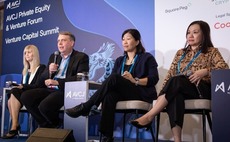
Goldman exits ICBC as banks face squeeze
Goldman Sachs has toppled The Carlyle Group at the top of China’s exit rankings, with $9.85 billion in proceeds generated from its investment in Industrial and Commercial Bank of China (ICBC) against an initial commitment of $2.58 billion.
Earlier this year, Carlyle walked away from China Pacific Insurance with more than $5 billion, having originally put in $800 million - a higher multiple than for the ICBC deal, but a lower cash-on-cash return.
A Goldman spokesperson indicated that although its seven-year relationship with ICBC has come to an end, it still considers the bank a long-term strategic partner. The US investment bank is also "committed and bullish about the China market in the long run," and its decision to exit has nothing to do with a perceived negative view on the prospects for state-run banks.
However, the reality is that these lenders are no longer the growth stories they once were: profit growth is slowing, margins are being squeezed and there are concerns about a fresh wave of non-performing loans (NPLs) emerging in the wake of China's post-global financial crisis credit boom. ICBC posted a net profit of $38.4 billion for 2012, up 15% year-on-year, but like its industry peers such as Bank of China, earnings growth was the slowest seen since the bank went public.
Goldman completed its exit last week with the sale of $1.1 billion worth of shares in ICBC - 1.57 billion shares sold at HK$5.50 apiece - to Temasek Holdings and other institutional investors. The initial investment came in 2006 as a clutch of international names, including HSBC, Bank of America Merrill Lynch and Temasek, bought into China's major state-owned banks ahead of their IPOs. Goldman took 4.9% of ICBC and the bank duly listed in Hong Kong later the same year.
The divestments - six block trades in total - began in 2009 once the lock-up period expired. Goldman sold 3.03 billion shares for $1.9 billion but then signed a voluntary new lock-up that required it to hold on to at least 80% of its shares until April 2010. Five months later, it exited another $2.25 billion worth of shares. The investment bank then sold $4.6 billion across three block trades in November 2011, April 2012 and January 2013.
Given the size of its interest in ICBC, Goldman was always aware of the impact stock volatility would have on its quarterly performance. Every three months, the bank reported separate profit and loss accounts for the ICBC investment.
In the most recent report, for the first quarter of 2013, the investment earned just $24 million versus $408 million for the whole year in 2012. Of particular note, ICBC was also a factor as the Goldman posted its first annual loss in Asia in three years in 2011 - the bank stake's value fell $517 million during the year, having contributed $747 million and $1.58 billion in profit in 2010 and 2009, respectively.
Latest News
Asian GPs slow implementation of ESG policies - survey
Asia-based private equity firms are assigning more dedicated resources to environment, social, and governance (ESG) programmes, but policy changes have slowed in the past 12 months, in part due to concerns raised internally and by LPs, according to a...
Singapore fintech start-up LXA gets $10m seed round
New Enterprise Associates (NEA) has led a USD 10m seed round for Singapore’s LXA, a financial technology start-up launched by a former Asia senior executive at The Blackstone Group.
India's InCred announces $60m round, claims unicorn status
Indian non-bank lender InCred Financial Services said it has received INR 5bn (USD 60m) at a valuation of at least USD 1bn from unnamed investors including “a global private equity fund.”
Insight leads $50m round for Australia's Roller
Insight Partners has led a USD 50m round for Australia’s Roller, a venue management software provider specializing in family fun parks.






